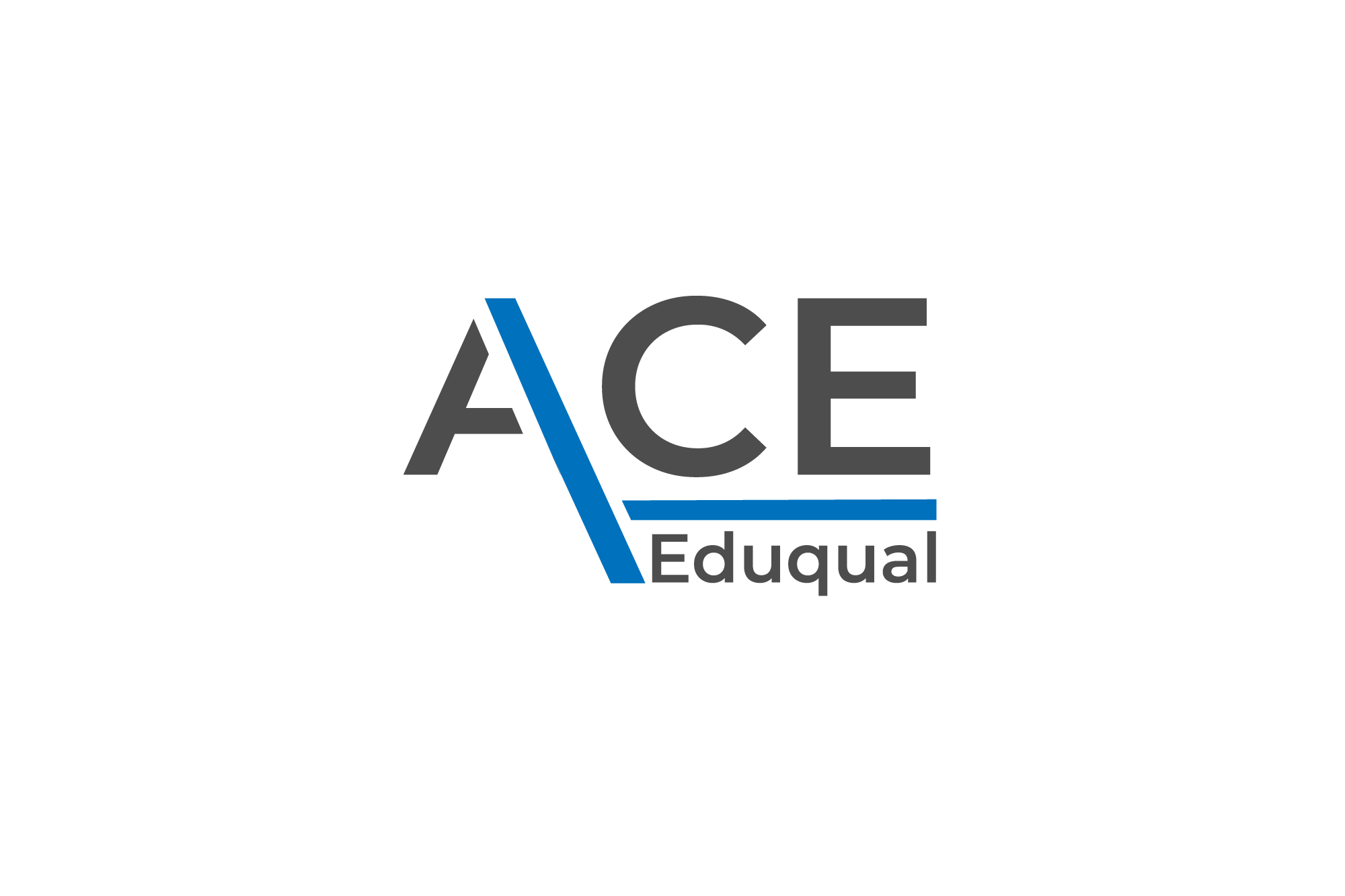Finance and Banking

Finance and Banking is a comprehensive course that explores the fundamental principles and practices of the financial industry. Students will gain insights into financial markets, investment analysis, and risk management strategies. The course covers key financial concepts, including financial statement analysis, time value of money, and capital budgeting. Participants will learn about banking operations, monetary policies, and the role of central banks. Additionally, the course examines various financial instruments, such as stocks, bonds, and derivatives, and their significance in the global economy. By the end of the course, students will be equipped with the knowledge and skills necessary to make informed financial decisions and excel in the banking sector.
Our Finance and Banking qualifications have been designed in collaboration with colleges, higher education institutions, and sector skills councils. They offer a pathway for individuals to progress to university degrees and cover Diploma Level- 3 to 7.
These qualifications provide the flexibility for learners to choose from a variety of optional units at each level. This allows them to specialize in specific areas while also gaining the essential core knowledge necessary for all managers.
- Build a strong foundation in finance and banking principles, theories, and fundamental concepts.
- Acquire a comprehensive understanding of financial markets, investment instruments, banking operations, risk management, and financial analysis.
- Develop proficiency in using mathematical and analytical principles to evaluate financial data, analyze investment opportunities, and optimize financial strategies.
- Gain practical experience in designing and implementing financial models, investment portfolios, and banking solutions through real-world projects and simulations.
- Understand the principles and techniques of financial planning, asset management, and financial decision-making in various economic environments.
- Develop skills in financial risk assessment, financial forecasting, and financial regulation compliance.
- Explore the principles of corporate finance, international finance, and financial technology (FinTech) applications.
- Foster critical thinking, problem-solving, and analytical skills to address complex financial challenges and make informed financial decisions.
- Enhance teamwork, communication, and project management skills through collaborative financial projects and assignments.
- Develop research skills and the ability to apply knowledge to conduct independent research in specialized areas of finance and banking.
Upon successful completion of the Finance and Banking program, graduates will have an extensive array of career prospects across different fields related to finance and banking. Potential career paths include financial analyst, banking consultant, investment researcher, finance educator, wealth management specialist, financial institution coordinator, and financial advisor, as well as advocates for financial literacy and responsible banking practices.
Graduates can explore employment opportunities in banks, financial institutions, investment firms, research organizations, non-profit organizations, government agencies, or opt for advanced studies in finance and banking at an advanced level.
Course Details

Level 3- National Diploma in Finance and Banking
Course Overview:
The Level 3- National Diploma in Finance and Banking is a comprehensive program that provides learners with fundamental knowledge and skills in finance, banking operations, and financial management. This course aims to equip students with a strong understanding of financial principles, banking systems, and investment fundamentals. It covers key concepts related to financial markets, risk management, accounting, and regulatory compliance in the financial sector. Throughout the course, students will develop critical analytical abilities and decision-making skills essential for pursuing a career in finance and banking.
Equivalences:
The Level 3- National Diploma in Finance and Banking is equivalent to an A-level qualification in the UK education system. It is also comparable to a Level 3 diploma or certificate in other international qualifications frameworks.
Course Contents:
The course content of the Level 3- National Diploma in Finance and Banking typically covers a range of advanced topics. Here are the topics covered:
- Introduction to Finance and Banking
- Financial Markets and Instruments
- Principles of Banking Operations
- Fundamentals of Accounting and Financial Statements
- Risk Management in Finance
- Investment and Portfolio Management
- Banking Law and Regulatory Compliance
- Personal Finance and Wealth Management
- Introduction to Economics and Monetary Policies
- Ethics and Professionalism in Finance and Banking
Assignment Criteria:
The qualification assessment criteria are based on assignments, but in order to pass, the learner must complete all of the unit’s learning requirements. At the completion of each unit, an interview will be held as proof that the work truly belongs to the learner.
Entry Requirements:
The specific entry requirements for the Level 3- National Diploma in Finance and Banking may include:
- A minimum age requirement (e.g., 16 years old)
- Completion of O-level/ 10th Standard or equivalent qualifications.
- Completion of a relevant Level 2 qualification in Finance and Banking or a related subject.
- Proficiency in English language (e.g., a minimum level of English language qualification)
The qualification has recommended course duration of 1 year.
Note: However the course duration may be increased to meet additional learning needs if required.
Level 4- Extended Diploma in Finance and Banking
Course Overview:
The Level 4- Extended Diploma in Finance and Banking is an advanced program that aims to enhance students’ knowledge and skills in finance and banking. This course builds upon the foundational concepts covered in the Level 3 Diploma and delves deeper into areas such as corporate finance, financial analysis, banking operations, and financial risk management. It equips learners with the expertise to critically analyze financial data, assess investment opportunities, and navigate complex financial markets. The course also emphasizes the application of financial principles to real-world scenarios, preparing students for roles in finance, banking, and related industries.
Equivalences:
The Level 4- Extended Diploma in Finance and Banking is comparable to a Higher National Certificate (HNC) or the first year of a bachelor’s degree in the UK education system. It is also similar to a Level 4 diploma or certificate in other international qualifications frameworks.
Course Contents:
The course content of the Level 4- Extended Diploma in Finance and Banking typically covers a range of advanced topics. Here are the topics covered:
- Corporate Finance and Financial Management
- Financial Analysis and Reporting
- Banking Services and Operations
- Investment Analysis and Portfolio Management
- Financial Markets and Institutions
- Financial Risk Management
- International Finance and Trade
- Banking Law and Regulation
- Fintech and Innovation in Finance
- Business Ethics and Corporate Governance
Assignment Criteria:
The qualification assessment criteria are based on assignments, but in order to pass, the learner must complete all of the unit’s learning requirements. At the completion of each unit, an interview will be held as proof that the work truly belongs to the learner
Entry Requirements:
The specific entry requirements for the Level 4- Extended Diploma in Finance and Banking are included:
- Minimum age requirements (usually 18 years or older).
- Completion of A-level/ 12th Standard or equivalent qualifications.
- Completion of a Level 3 qualification in Finance and Banking or a related field.
- English language proficiency, demonstrated through language tests or previous education in an English-speaking environment.
Course Duration:
The qualification has recommended course duration of 1 year.
Note: However the course duration may be increased to meet additional learning needs if required.
Level 5- Higher National Diploma in Finance and Banking
Course Overview:
The Level 5- Higher National Diploma in Finance and Banking is an advanced and specialized program that aims to develop professionals’ expertise in finance and banking. This course builds upon the knowledge gained in the Level 4 Diploma and focuses on complex financial management, strategic decision-making, financial regulations, and risk assessment in the banking industry. It equips learners with advanced skills in financial analysis, investment strategies, and corporate finance. The course emphasizes critical thinking and problem-solving to address challenges in the rapidly changing financial landscape.
Equivalences:
The Level 5- Higher National Diploma in Finance and Banking is comparable to a Higher National Diploma (HND) or the second year of a bachelor’s degree in the UK education system. It is also similar to a Level 5 diploma or certificate in other international qualifications frameworks.
Course Contents:
The course content of the Level 5- Higher National Diploma in Finance and Banking typically covers a range of advanced topics. Here are the topics covered:
- Advanced Corporate Finance
- Financial Markets and Trading Strategies
- International Banking and Trade Finance
- Financial Derivatives and Risk Hedging
- Mergers, Acquisitions, and Corporate Restructuring
- Regulation and Compliance in Finance and Banking
- Wealth Management and Private Banking
- Behavioral Finance and Decision Making
- Financial Technology (FinTech) in Banking
- Research Methods in Finance and Banking
Assignment Criteria:
The qualification assessment criteria are based on assignments, but in order to pass, the learner must complete all of the unit’s learning requirements. At the completion of each unit, an interview will be held as proof that the work truly belongs to the learner.
Entry Requirements:
The specific entry requirements for the Level 5- Higher National Diploma in Finance and Banking may include:
- Minimum age requirements (usually 18 years or older).
- A year 1 of bachelor’s degree, A Level 4 Diploma or equivalent qualification in Finance and Banking or a related field.
- English language proficiency, demonstrated through language tests or previous education in an English-speaking environment.
Course Duration:
The qualification has recommended course duration of 18 Months.
Note: However the course duration may be increased to meet additional learning needs if required.
Level 6- International Diploma in Finance and Banking
Course Overview:
The Level 6- International Diploma in Finance and Banking is an advanced and prestigious program designed for experienced professionals and aspiring leaders in the finance and banking industry. This course focuses on strategic financial management, investment analysis, risk assessment, and financial innovation. It equips learners with advanced skills in financial decision-making, portfolio management, and financial modeling. The course emphasizes the application of financial theories to real-world scenarios, preparing students for senior roles in finance, banking, and related sectors. It also fosters critical thinking and research capabilities to contribute to the advancement of the finance and banking field.
Equivalences:
The Level 6- International Diploma in Finance and Banking is comparable to the final year of a bachelor’s degree in the UK education system. It is also similar to a Level 6 diploma or certificate in other international qualifications frameworks.
Course Contents:
The course content of the Level 6- International Diploma in Finance and Banking typically covers a range of advanced topics. Here are the topics covered:
- Strategic Financial Management
- Advanced Investment Analysis and Portfolio Management
- Financial Modeling and Quantitative Techniques
- Risk Assessment and Management in Banking
- Financial Regulation and Corporate Governance
- Corporate Finance and Capital Structure
- Advanced Financial Reporting and Analysis
- Behavioral Finance and Market Psychology
- Financial Innovation and Fintech Applications
- Islamic Finance and Banking Principles
- Global Banking and Emerging Markets
- Dissertation or Research Project in Finance and Banking
Assignment Criteria:
The qualification assessment criteria are based on assignments, but in order to pass, the learner must complete all of the unit’s learning requirements. At the completion of each unit, an interview will be held as proof that the work truly belongs to the learner.
Entry Requirements:
The course content of the Level 6- International Diploma in Finance and Banking typically may include:
- Minimum age requirements (usually 20 years or older).
- A year 2 of bachelor’s degree , A Level 5 Diploma or equivalent qualification in Finance and Banking or a related field.
- English language proficiency, demonstrated through language tests or previous education in an English-speaking environment.
Course Duration:
The qualification has recommended course duration of 18 Months.
Note: However the course duration may be increased to meet additional learning needs if required.
Level 7- Post Graduate Diploma in Finance and Banking
Course Overview:
The Level 7- Post Graduate Diploma in Finance and Banking is an advanced and prestigious program designed for senior professionals and executives in the finance and banking industry. This course focuses on strategic financial leadership, risk management, global financial markets, and financial innovation. It equips learners with the skills to analyze complex financial scenarios, make informed decisions, and lead financial institutions effectively. The course emphasizes critical thinking, research, and the application of advanced financial theories to address challenges in the dynamic financial landscape.
Equivalences:
The Level 7- Post Graduate Diploma in Finance and Banking is comparable to a Master’s degree or a Postgraduate Diploma in the UK education system. It is also similar to a Level 7 diploma or certificate in other international qualifications frameworks.
Course Contents:
The course content of the Level 7- Post Graduate Diploma in Finance and Banking typically covers a range of advanced topics. Here are the topics covered:
- Strategic Financial Leadership
- Risk Management in Financial Institutions
- Global Financial Markets and Instruments
- Financial Derivatives and Hedging Strategies
- Behavioral Finance and Decision Making
- Financial Innovation and Fintech Trends
- Corporate Governance and Ethics in Finance
- Advanced Financial Modeling and Forecasting
- Advanced Portfolio Management
- Financial Regulation and Compliance
- Investment Banking and Mergers & Acquisitions
- Islamic Finance Principles and Practices
- Quantitative Finance and Data Analysis
- Research Methods in Finance and Banking
- Dissertation or Research Project in Finance and Banking
Assignment Criteria:
The qualification assessment criteria are based on assignments, but in order to pass, the learner must complete all of the unit’s learning requirements. At the completion of each unit, an interview will be held as proof that the work truly belongs to the learner.
Entry Requirements:
The specific entry requirements for the Level 7- Post Graduate Diploma in Finance and Banking may include:
- A minimum age requirement (e.g., 22 years old)
- A complete Bachelor’s degree, UK level 6 diploma in Finance and Banking or an equivalent overseas qualification.
- English language proficiency, demonstrated through language tests or previous education in an English-speaking environment.
Course Duration:
The qualification has recommended course duration of 2 years.
Note: However the course duration may be increased to meet additional learning needs if required.

